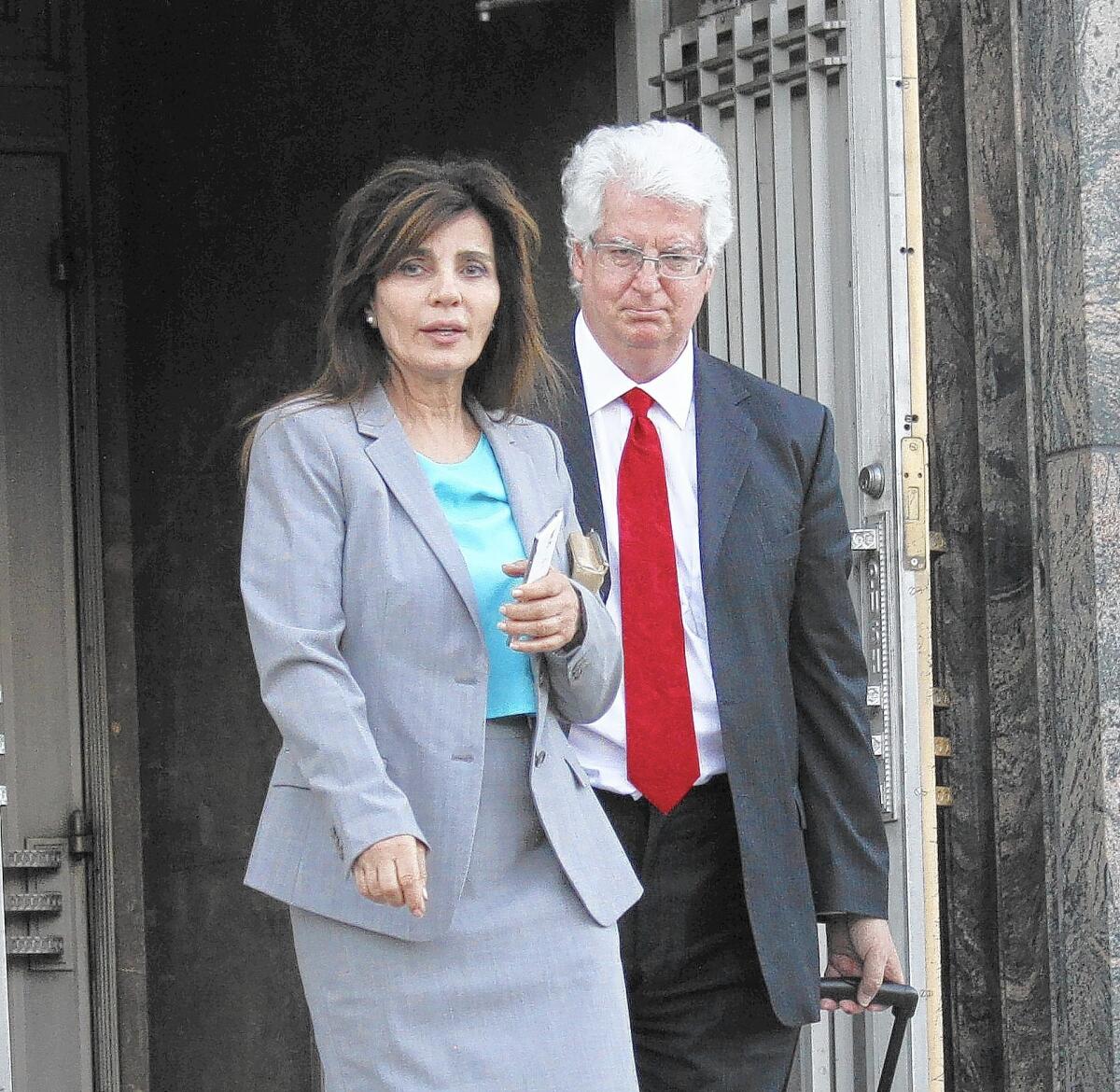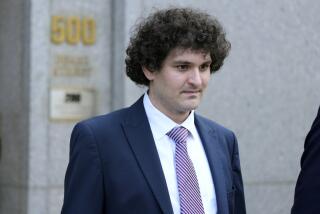Cindy Omidi convicted of violating laws to prevent money laundering

The mother of two brothers behind the now-defunct 1-800-GET-THIN ad campaign was convicted Friday of violating laws designed to prevent money laundering.
Jurors reached their verdict after listening to three days of testimony this week before U.S. District Judge Stephen V. Wilson in Los Angeles.
Cindy Omidi, 65, had been accused of illegally buying dozens of postal money orders in an amount just below the $3,000 threshold that would have required postal officials to keep reports about them. She was charged with violating a federal law that prohibits sizing money order purchases to avoid scrutiny by the government.
The charges carry a maximum possible sentence of 10 years in federal prison, but as a first-time offender she is likely to receive substantially less time. The sentencing hearing is scheduled for Jan. 12.
Omidi and her attorneys declined to comment on the verdict.
Federal prosecutors built their case around the circumstances of the purchases. Many of the money orders were paid for in cash immediately after Cindy Omidi’s credit card was used to buy postage and other supplies — from the same postal teller, prosecutors said.
And, they said, more than $20,000 of the money orders was deposited into Cindy Omidi’s personal bank account. Other money orders were deposited into the bank account of a dermatology business that she managed with her son, Julian Omidi, who ran a dermatology business before he lost his license to practice medicine, they added.
Outside the courthouse, one juror said the repeated transactions, the credit card evidence and the deposits into Cindy Omidi’s account were strong evidence that she was the one buying the money orders.
“It was the consistency of the transactions, over and over, the same amount,” said the juror, a 28-year-old Highland Park resident who works in set design for a performing arts school. He declined to give his name. The deposits into Cindy Omidi’s personal and business accounts “is literally what gave it away,” he said.
During the trial, the defense argued that the money orders were purchased by Cindy Omidi’s younger brother, Ken Pezeshk, who defense witnesses said frequently conducted business transactions with money orders. Pezeshk fell to his death from the balcony of a West Los Angeles high-rise condominium on Feb. 9, 2010, at age 57.
In his closing argument, defense attorney Nathan Hochman noted that the money order purchases at issue in the case — there were more than 300 of them — ended the day that Pezeshk died.
“That’s huge,” Hochman said. “Why did they stop on 2-9-10? Because he passed away. Ken Pezeshk was the person who bought the money orders, not Cindy Omidi.”
Hochman said Pezeshk was using the money orders to repay a $200,000 loan from the dermatology business. That would explain why the money orders were deposited into the business account, he said.
The defense also noted that there were no videos, no photographs and no fingerprints linking Cindy Omidi to the purchases. There was also no evidence that Cindy Omidi had obtained money illegally, which could have given her motive to launder money, her attorneys said.
Assistant U.S. Atty. Evan Davis told jurors that Pezeshk did not list his name on any of the money orders, or deposit them into his bank accounts. Cindy Omidi’s name and signature was on most of them, Davis said.
“If you follow the money, it all points to the defendant,” Davis said.
A postal clerk named Roberta Chandler testified Wednesday that she recognized Cindy Omidi as someone who purchased money orders from her at a West Los Angeles post office. But she said she could not recall whether any of them were for $2,900. Prosecutors accused Cindy Omidi of purchasing 93 money orders for exactly that amount.
Cindy Omidi’s sons, Julian and Michael Omidi, who were in the courtroom for the verdict, have been named in numerous lawsuits as the owners of the Lap-Band weight-loss-surgery business that was widely advertised on Southern California freeway billboards, radio and television.
The brothers are also the subjects of a federal investigation into several potential crimes, including healthcare fraud, money laundering, tax violations and identity theft related to the heavily advertised surgery business, according to a 2012 court filing. That investigation is “active,” prosecutors said in a trial memorandum filed Oct. 3 in Cindy Omidi’s case.
The brothers, who both earned medical degrees, have denied wrongdoing through their attorneys. No charges have been filed.
The 1-800-GET-THIN ad campaign promoted Lap-Band weight-loss surgery performed at clinics throughout Southern California and as far north as the San Francisco Bay Area.
Five patients died following surgeries at Southern California clinics affiliated with 1-800-GET-THIN from 2009 to 2011, according to lawsuits, autopsy reports and other public records.
The billboards came down in 2012 after the Food and Drug Administration warned that the ads were misleading because they failed to include adequate warnings about the risks of the surgery.
Twitter: @spfeifer22







